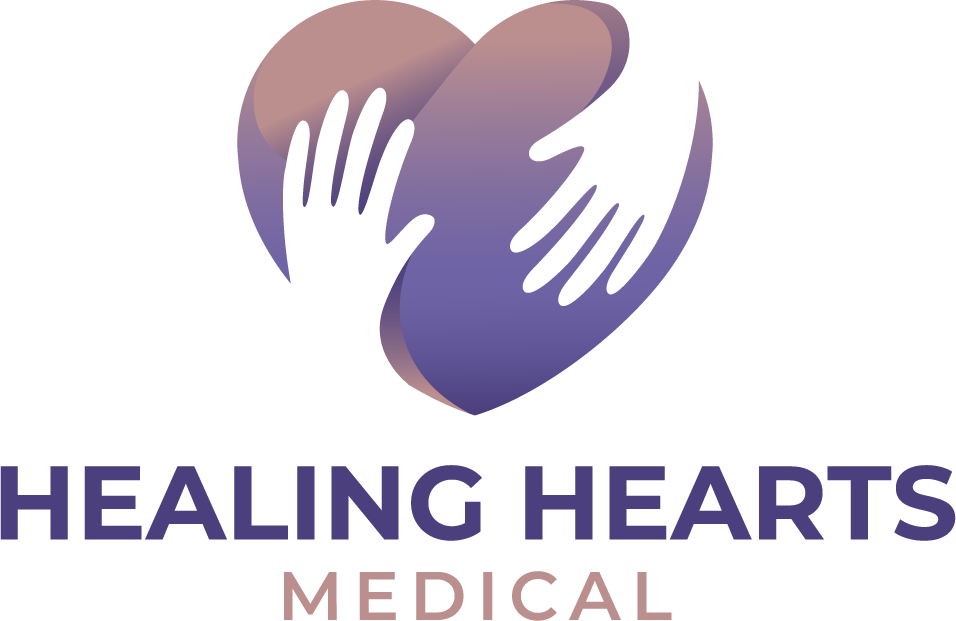Imagine you’re helping a senior regain their independence. Occupational therapy is the key, offering personalized approaches that cater to each individual’s unique needs. With its focus on improving motor skills, adapting home environments, and utilizing assistive devices, this therapy empowers seniors to overcome challenges. It’s not just about physical abilities; cognitive and memory enhancement techniques play a vital role too. Curious about how this all comes together to enrich lives?
Understanding the Basics of Occupational Therapy
When you begin exploring the essentials of occupational therapy, you’ll discover it’s more than just a set of exercises; it’s a personalized journey towards improving daily life. Occupational therapy empowers seniors by focusing on enhancing their independence and quality of life. You’ll find that it’s about adapting everyday activities to fit the unique needs of each individual. Evidence shows that occupational therapy can notably boost senior independence, enabling them to perform tasks confidently and safely. Through empathetic guidance, you can learn strategies to overcome physical limitations, like using adaptive tools or modifying home environments. By understanding these basics, you’re taking the first step in supporting seniors to live more fulfilled, autonomous lives, ultimately enriching their day-to-day experiences.
Assessing Individual Needs and Goals
When you’re evaluating the needs and goals of seniors in occupational therapy, it’s essential to create personalized care plans that address their unique situations. By conducting functional mobility assessments, you can identify specific challenges and tailor interventions to enhance their daily independence. Additionally, assessing cognitive skills allows you to set realistic goals that promote both mental and physical well-being.
Personalized Care Plans
Understanding each senior’s unique needs and aspirations is essential to crafting personalized care plans in occupational therapy. By focusing on personalized interventions, you can guarantee that the strategies align with each individual’s life goals and preferences. It’s not just about addressing physical limitations; it’s about enhancing overall well-being and quality of life. Customized strategies might include adapting daily routines, modifying home environments, or recommending specific exercises that address personal challenges. Evidence shows that when care plans are customized, seniors are more engaged and motivated, leading to better outcomes. You’re not just a participant in therapy; you’re an active collaborator. This collaborative approach fosters independence, as it empowers you to take charge of your health and embrace aging with confidence.
Functional Mobility Assessment
Before diving into specific interventions, it is crucial to conduct a functional mobility assessment to identify individual needs and goals. By understanding your mobility challenges, therapists can develop dynamic assessments that tailor strategies to your unique situation. This isn’t just about identifying limitations; it’s about empowering you to overcome them. Occupational therapists use evidence-based approaches to examine how you move through daily activities, ensuring the assessment is both insightful and empathetic.
| Aspect | Purpose |
| Gait Analysis | Identify walking patterns and challenges |
| Balance Evaluation | Assess stability during movement |
| Strength Assessment | Determine muscle capability for tasks |
These assessments help pinpoint specific areas for improvement, enabling personalized interventions that foster independence and enhance quality of life. Remember, the goal is to support your journey towards greater autonomy.
Cognitive Skill Evaluation
Exploring your cognitive abilities is as important as understanding your physical capabilities when aiming to enhance daily living. Cognitive assessments offer a structured way to evaluate your memory, attention, and problem-solving skills, providing a thorough snapshot of your cognitive health. These assessments can identify areas needing support and highlight strengths you can leverage. With this information, occupational therapists can tailor interventions to your unique needs.
Memory strategies are essential tools in this process, helping you manage everyday tasks more effectively. Techniques like creating routines or using visual reminders can greatly improve your independence. By focusing on both strengths and challenges, you can work towards maintaining and even enhancing your cognitive function, ensuring you continue to lead a fulfilling, independent life.
Improving Motor Skills and Coordination

You might notice that as you age, tasks requiring fine motor skills and hand-eye coordination become more challenging. Occupational therapy offers targeted exercises to strengthen these abilities, helping you maintain independence and reduce frustration in daily activities. Research shows that consistent practice can lead to significant improvements, allowing you to enjoy hobbies and manage routine tasks with greater ease.
Strengthening Fine Motor Skills
Enhancing fine motor skills is essential for seniors to maintain their independence and quality of life. Engaging in fine motor exercises can greatly improve your dexterity, making everyday tasks like buttoning a shirt or writing a note much easier. Occupational therapy offers customized dexterity training to strengthen your hand and finger muscles. Research shows that consistent practice can lead to noticeable improvements in function and reduce frustration in daily activities.
Here’s a simple overview of effective exercises:
| Exercise | Benefit | Frequency |
| Finger Tapping | Improves finger strength | 3 times a week |
| Putty Squeezing | Enhances grip strength | Daily |
| Coin Sorting | Boosts precision | 4 times a week |
Enhancing Hand-Eye Coordination
Many seniors find that maintaining hand-eye coordination is essential for performing daily tasks with ease and confidence. It’s not just about picking up a cup or buttoning a shirt; it’s about ensuring your fine motor skills and visual perception work in harmony. Occupational therapy can play a pivotal role in enhancing these skills. Through customized exercises, therapists help you improve coordination, boosting both independence and quality of life. For example, activities like using peg boards or threading beads can refine your fine motor abilities while also sharpening your visual perception. Research shows that consistent practice in these areas can lead to significant improvements in daily functioning, allowing you to carry out tasks more efficiently and safely.
Adapting Home Environments for Safety
When creating a safer home environment for seniors, understanding their unique needs and potential challenges is vital. You want to guarantee their home promotes independence while reducing risks. Home modifications like grab bars in the bathroom and non-slip mats can prevent falls, a leading cause of senior injuries. Install brighter lighting and remove tripping hazards to enhance visibility and mobility. Safety measures such as smoke detectors and carbon monoxide alarms are imperative. Rearranging furniture for easier navigation and adjusting cabinet heights can make daily tasks more manageable. Consulting with occupational therapists provides customized advice, guaranteeing changes are evidence-based and empathetic. By considering these modifications, you’re not just adapting a home; you’re fostering a space where seniors can thrive safely.
Utilizing Assistive Devices for Daily Living
Assistive devices play an essential role in maintaining independence and quality of life for seniors. They’re not just tools; they’re your partners in managing daily challenges. Adaptive equipment like grab bars, reachers, and dressing sticks can make a significant difference. These daily aids help you perform tasks safely and efficiently, reducing reliance on others. Research indicates that using adaptive equipment can improve physical functioning and enhance your confidence in performing daily activities.
With the guidance of an occupational therapist, you can select the right daily aids customized to your needs. This process is grounded in understanding your unique lifestyle and goals. Ultimately, incorporating assistive devices into your routine can empower you to lead a more independent and fulfilling life.
Techniques for Cognitive and Memory Enhancement

While assistive devices support physical independence, cognitive health is equally important for seniors to maintain a fulfilling life. You can engage in various cognitive exercises customized to enhance memory and cognitive function. Memory games can be both enjoyable and beneficial, offering a playful approach to stimulating brain activity. These activities challenge recall and processing skills, essential for everyday tasks. Studies show that regular mental engagement can slow cognitive decline, helping you stay sharp and independent. Occupational therapists often recommend personalized cognitive exercises, such as puzzles or strategy games, to keep your mind active. Consistent practice not only boosts memory but also enhances problem-solving abilities, contributing to overall well-being. By prioritizing cognitive health, you’re investing in a more vibrant, self-sufficient future.
Collaborating With Family and Caregivers for Continued Support
How can families and caregivers play a vital role in the success of a senior’s occupational therapy journey? By actively engaging in family involvement, you provide essential emotional and practical support. This involvement guarantees that therapeutic strategies are consistently applied at home, reinforcing the progress made in therapy sessions. Caregiver training is imperative, too; it equips you with the skills to assist seniors effectively in their daily activities, promoting independence and confidence.
Research shows that when caregivers are well-informed and actively participate, seniors experience improved outcomes. Your understanding and empathy can transform therapy goals into achievable milestones. By collaborating with occupational therapists, you guarantee that the support continues seamlessly, helping seniors maintain their independence and quality of life. Your role is indispensable.
Frequently Asked Questions
How Can Seniors Find Qualified Occupational Therapists in Their Area?
To find qualified therapists, you can explore local resources like senior centers, healthcare providers, or online directories. They often list experienced professionals. Don’t hesitate to ask friends or family for recommendations based on their experiences.
What Are the Costs Associated With Occupational Therapy for Seniors?
You might face varying costs depending on therapy duration and insurance coverage. Typically, insurance can cover some expenses, but out-of-pocket costs will differ. Consult your provider to understand coverage specifics and potential financial assistance options.
How Often Should Seniors Attend Occupational Therapy Sessions?
You should typically attend occupational therapy sessions 1-3 times a week, depending on individual needs. Therapy frequency and session duration are customized to maximize progress. Evidence suggests consistent sessions greatly boost independence and quality of life.
What Is the Difference Between Occupational Therapy and Physical Therapy?
You might wonder about the differences. Occupational therapy benefits you by enhancing daily activities and cognitive skills, while physical therapy focuses on improving your physical strength and mobility. Both aim to support your overall well-being and independence.
Can Occupational Therapy Help With Emotional and Mental Well-Being?
Yes, occupational therapy supports your mental health by boosting emotional resilience. Therapists work with you to develop coping strategies, manage stress, and improve self-esteem, enhancing your overall well-being and ability to handle life’s challenges.
Conclusion
You’ve seen how occupational therapy empowers seniors to regain independence by tailoring plans to their unique needs. By focusing on improving motor skills, adapting home environments, and using assistive devices, therapists help seniors overcome challenges. Techniques for cognitive enhancement further enrich their lives. Success stories highlight the transformative impact of this approach.
Healing Hearts Medical plays a vital role in supporting this journey. Their experienced team collaborates closely with occupational therapists to ensure that care plans are implemented effectively at home. From assisting with mobility exercises to helping set up a safer living environment, their compassionate caregivers reinforce therapy goals and provide daily encouragement. This ongoing collaboration between therapists, families, caregivers, and the dedicated staff at Healing Hearts Medical empowers seniors to not only achieve their daily living goals but also experience a renewed sense of confidence and fulfillment.

